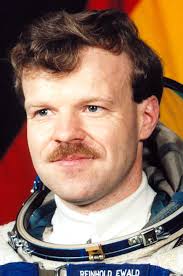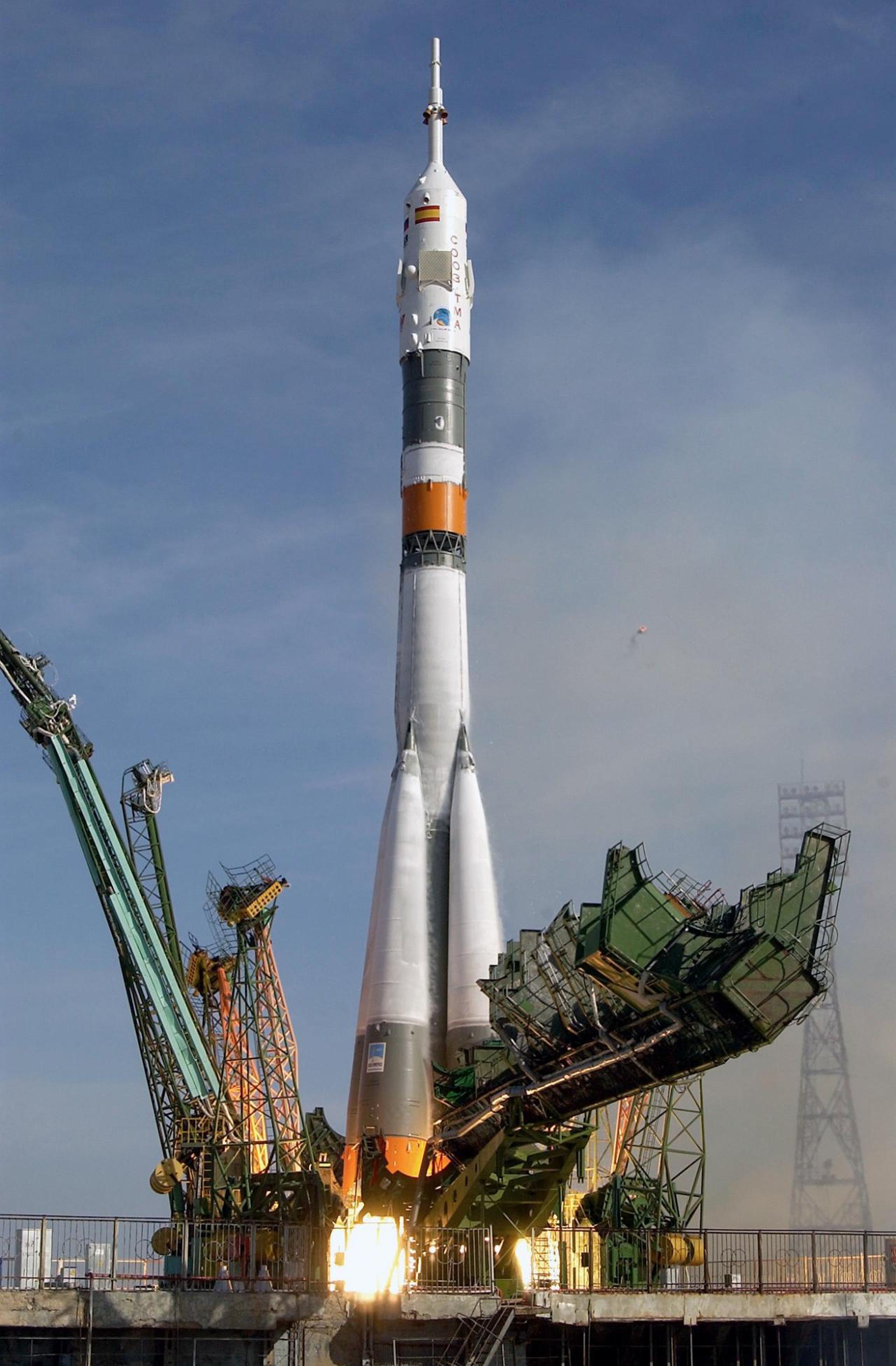Reinhold Ewald
German - (ESA)
Retired
Date of Birth: Dec. 18, 1956
Age: 69
Dr. Reinhold Ewald (born December 18, 1956) is a German physicist and ESA astronaut. In 1990, he was selected to the German astronaut team, training for the Mir '92 mission. He was the backup of Klaus-Dietrich Flade for the Soyuz TM-14 mission. In 1995 he began training for the second German Mir mission. In February 1997 he flew to the space station Mir with Soyuz TM-25, spending 20 days in space. He performed experiments in biomedical and material sciences, and carried out operational tests in preparation for the International Space Station.
Soyuz-U | Soyuz TM-24
Russian Federal Space Agency (ROSCOSMOS) | RussiaBaikonur Cosmodrome, Republic of Kazakhstan
Aug. 17, 1996, 1:18 p.m.
Status: Success
Mission:
Soyuz TM-24 was the 27th mission and the 22nd long-duration expedition to Mir space station. It was also a part of the US/Russian Shuttle-Mir Program. The mission began on 17 August 1996, 13:18:03 UTC, launching Commander Valery Korzun, Flight Engineer Aleksandr Kaleri and Research Cosmonaut Claudie André-Deshays into orbit. They docked with Mir two days later. During their stay there, cosmonauts performed several EVAs and various scientific experiments. Station crew was visited by several Progress resupply spacecrafts, STS-79 and STS-81, and welcomed aboard Soyuz TM-25 with the next expedition crew. The mission concluded with a safe landing back on Earth on March 2, 1997, 06:44:16 UTC.
Low Earth OrbitSoyuz-U | Soyuz TM-25
Russian Federal Space Agency (ROSCOSMOS) | RussiaBaikonur Cosmodrome, Republic of Kazakhstan
Feb. 10, 1997, 2:09 p.m.
Status: Success
Mission:
Soyuz TM-25 was the 30th mission and the 23rd long-duration expedition to Mir space station. It was also a part of the US/Russian Shuttle-Mir Program. The mission began on February 10, 1997, 14:09:30 UTC, launching Commander Vasili Tsibliyev, Flight Engineer Aleksandr Lazutkin and Research Cosmonaut Reinhold Ewald into orbit. They docked with Mir two days later. During their stay there, cosmonauts performed an EVA and various scientific experiments in medicine, biotechnology, Earth sciences etc. Station crew was visited by several Progress resupply spacecrafts, STS-84, and welcomed aboard Soyuz TM-26 with the next expedition crew. The mission concluded with a safe landing back on Earth on August 14, 1997, 12:17:10 UTC.
Low Earth OrbitThe European Space Agency is an intergovernmental organisation of 22 member states. Established in 1975 and headquartered in Paris, France, ESA has a worldwide staff of about 2,000 employees. ESA's space flight programme includes human spaceflight (mainly through participation in the International Space Station program); the launch and operation of unmanned exploration missions to other planets and the Moon; Earth observation, science and telecommunication; designing launch vehicles; and maintaining a major spaceport, the Guiana Space Centre at Kourou, French Guiana.
Falcon 9
Starlink Group 6-103
Space Launch Complex 40 - Cape Canaveral SFS, FL, USAA batch of 29 satellites for the Starlink mega-constellation - SpaceX's project for space-based Internet communication system.
Falcon 9
Starlink Group 17-13
Space Launch Complex 4E - Vandenberg SFB, CA, USAA batch of 24 satellites for the Starlink mega-constellation - SpaceX's project for space-based Internet communication system.
Falcon 9
Crew-12
Space Launch Complex 40 - Cape Canaveral SFS, FL, USASpaceX Crew-12 is the twelfth crewed operational flight of a Crew Dragon spacecraft to the International Space Station as part of NASA's Commercial C…
Ariane 64
Amazon Leo (LE-01)
Ariane Launch Area 4 - Guiana Space Centre, French GuianaAmazon Leo, formerly known as Project Kuiper, is a mega constellation of satellites in Low Earth Orbit that will offer broadband internet access, thi…
Vulcan VC4S
USSF-87
Space Launch Complex 41 - Cape Canaveral SFS, FL, USAUSSF-87 will launch two identical Geosynchronous Space Situational Awareness Program (GSSAP) satellites GSSAP-7 and GSSAP-8 directly to a near-geosyn…



